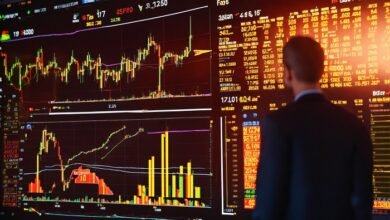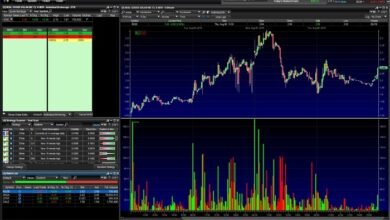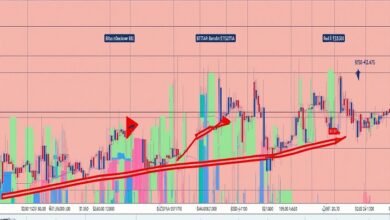FX Trading: A Comprehensive Guide for Aspiring Traders

Introduction
FX trading, also known as forex trading, involves the exchange of currencies on the global market. This dynamic and potentially lucrative market attracts traders worldwide, offering opportunities to profit from currency fluctuations. This comprehensive guide will delve into the fundamentals, strategies, tools, and tips essential for mastering FX trading.
FX Trading
FX trading is the process of buying and selling currencies with the aim of making a profit. The forex market is the largest financial market globally, with a daily trading volume exceeding $6 trillion. FX trading operates 24 hours a day, five days a week, allowing traders to participate at any time. Understanding the mechanics of FX trading, including currency pairs, pips, and leverage, is crucial for success.
History of FX Trading
The history of FX trading dates back to ancient times when merchants exchanged goods and currencies. However, modern FX trading began after the collapse of the Bretton Woods system in 1971, which led to floating exchange rates. Since then, FX trading has evolved significantly, with advancements in technology and the rise of online trading platforms making it accessible to individual traders.
Key Participants in the FX Market
Various participants play a role in the FX market, each with different motivations. Major participants include central banks, commercial banks, financial institutions, hedge funds, corporations, and retail traders. Understanding the roles and influences of these participants can help traders anticipate market movements and develop effective FX trading strategies.
The Importance of Currency Pairs in FX Trading
In FX trading, currencies are traded in pairs, such as EUR/USD or GBP/JPY. The first currency in the pair is the base currency, and the second is the quote currency. Currency pairs are categorized into three types: major pairs, minor pairs, and exotic pairs. Each type has unique characteristics and volatility levels, influencing trading strategies.
Analyzing the Forex Market: Fundamental vs. Technical Analysis
Successful FX trading relies on effective market analysis. There are two primary approaches: fundamental analysis and technical analysis. Fundamental analysis examines economic indicators, political events, and market sentiment to predict currency movements. Technical analysis, on the other hand, uses historical price data and chart patterns to identify trends and potential entry and exit points. Combining both approaches can enhance trading decisions.
Essential Tools for FX Trading
To succeed in FX trading, traders need various tools and resources. These include trading platforms, charting software, economic calendars, news feeds, and risk management tools. Choosing the right tools and becoming proficient in their use can significantly improve trading performance and decision-making.
Risk Management in FX Trading
Risk management is a critical aspect of FX trading, as it helps protect against significant losses. Key risk management techniques include setting stop-loss orders, using proper position sizing, and diversifying trading portfolios. Adhering to a disciplined risk management plan is essential for long-term success in FX trading.
Psychological Aspects of FX Trading
The psychological aspects of FX trading can greatly impact a trader’s performance. Emotions such as fear and greed can lead to impulsive decisions and significant losses. Developing a strong trading mindset, maintaining discipline, and sticking to a well-defined trading plan are crucial for managing emotions and achieving consistent results in FX trading.
The Role of Brokers in FX Trading
Brokers play a vital role in FX trading by providing access to the forex market, offering trading platforms, and executing trades on behalf of traders. Choosing a reputable and reliable broker is essential for a smooth trading experience. Factors to consider when selecting a broker include regulatory status, trading costs, customer support, and the range of available trading instruments.
Learning and Improving in FX Trading
Continuous learning and improvement are essential for success in FX trading. Traders should regularly update their knowledge of market trends, new strategies, and trading tools. Participating in webinars, reading books and articles, and practicing on demo accounts are effective ways to enhance trading skills and stay ahead in the competitive forex market.
Conclusion
FX trading offers immense opportunities for profit, but it also comes with significant risks. Mastering FX trading requires a thorough understanding of the market, effective analysis techniques, strategic planning, and disciplined risk management. By leveraging the insights and tips provided in this guide, aspiring traders can enhance their skills and increase their chances of success in the dynamic world of FX trading.
FAQs
1. What is FX trading?
FX trading, or forex trading, involves the exchange of currencies in the global market to profit from fluctuations in exchange rates. It is the largest financial market in the world, operating 24 hours a day, five days a week.
2. What are the key participants in the FX market?
The key participants in the FX market include central banks, commercial banks, financial institutions, hedge funds, corporations, and retail traders. Each participant plays a different role and influences the market in various ways.
3. What are the most popular FX trading strategies?
Some popular FX trading strategies include scalping, day trading, swing trading, and position trading. Each strategy has its unique approach and requires specific skills and risk management techniques.
4. How important is risk management in FX trading?
Risk management is crucial in FX trading as it helps protect against significant losses. Effective risk management techniques include setting stop-loss orders, using proper position sizing, and diversifying trading portfolios.
5. How can I improve my FX trading skills?
Improving FX trading skills involves continuous learning and practice. Traders can enhance their knowledge by participating in webinars, reading books and articles, practicing on demo accounts, and staying updated on market trends and new strategies.





